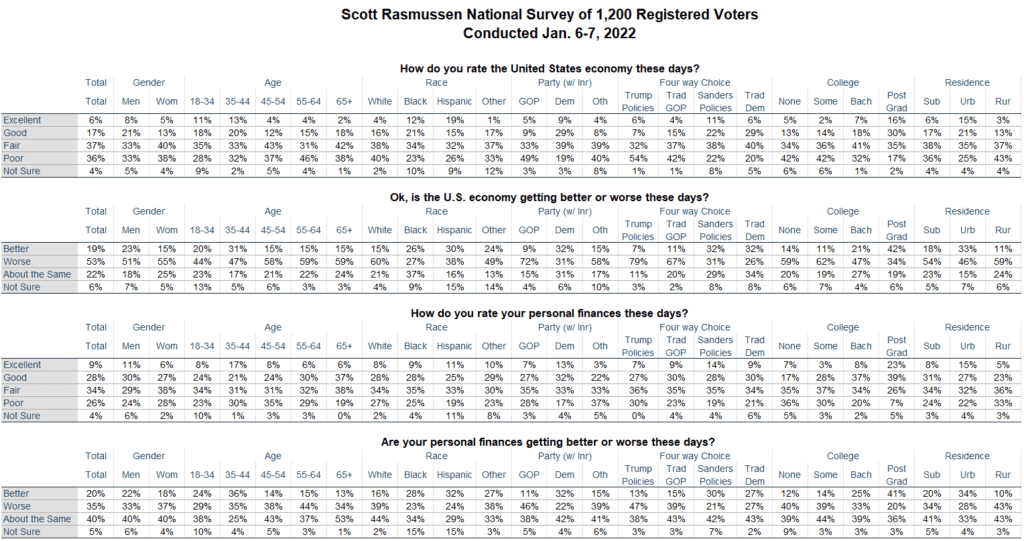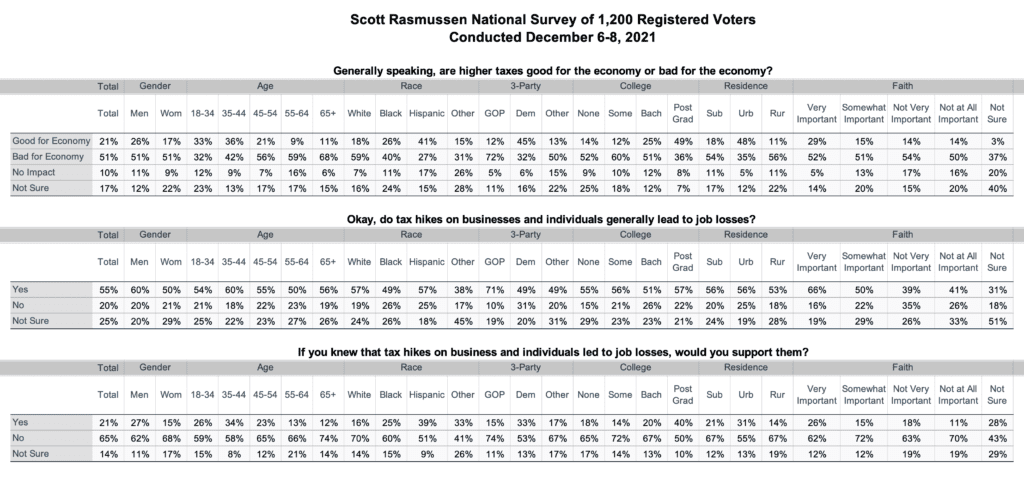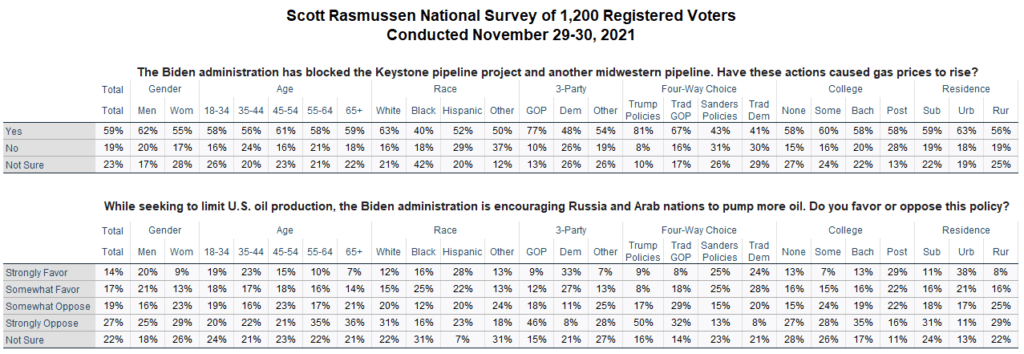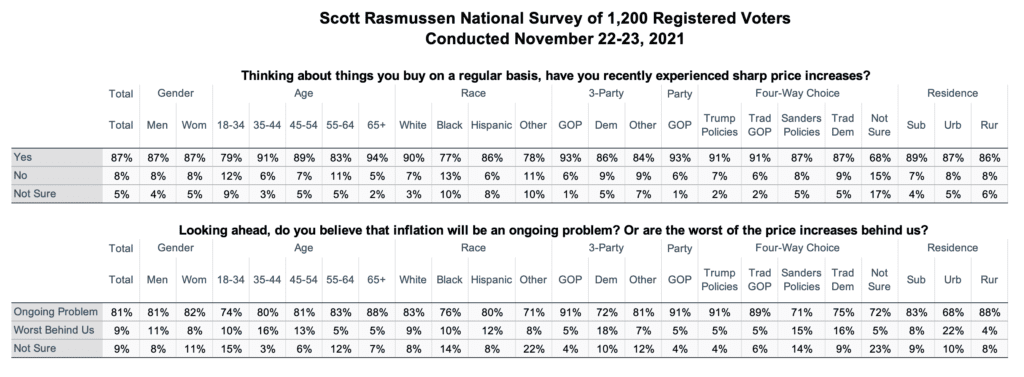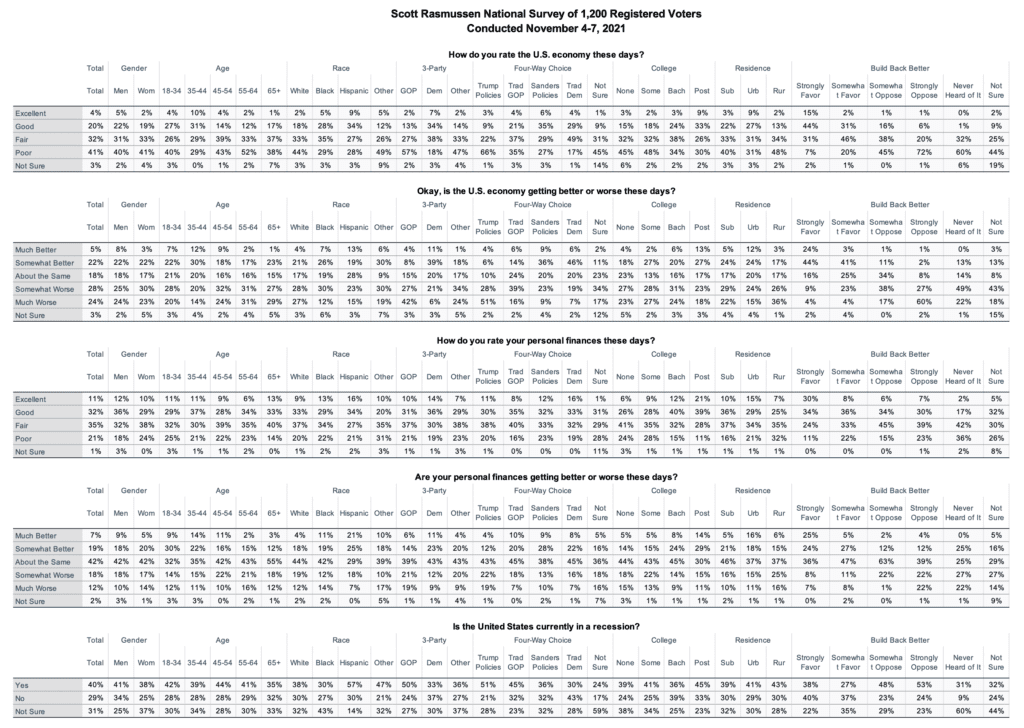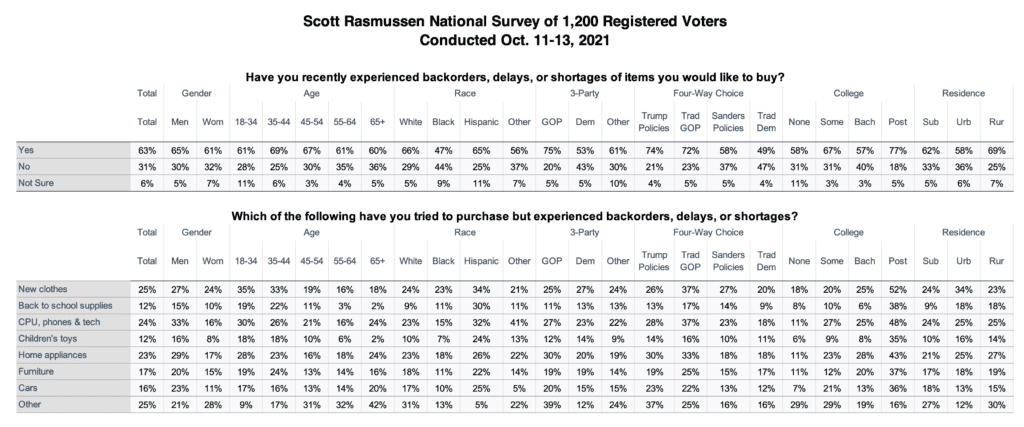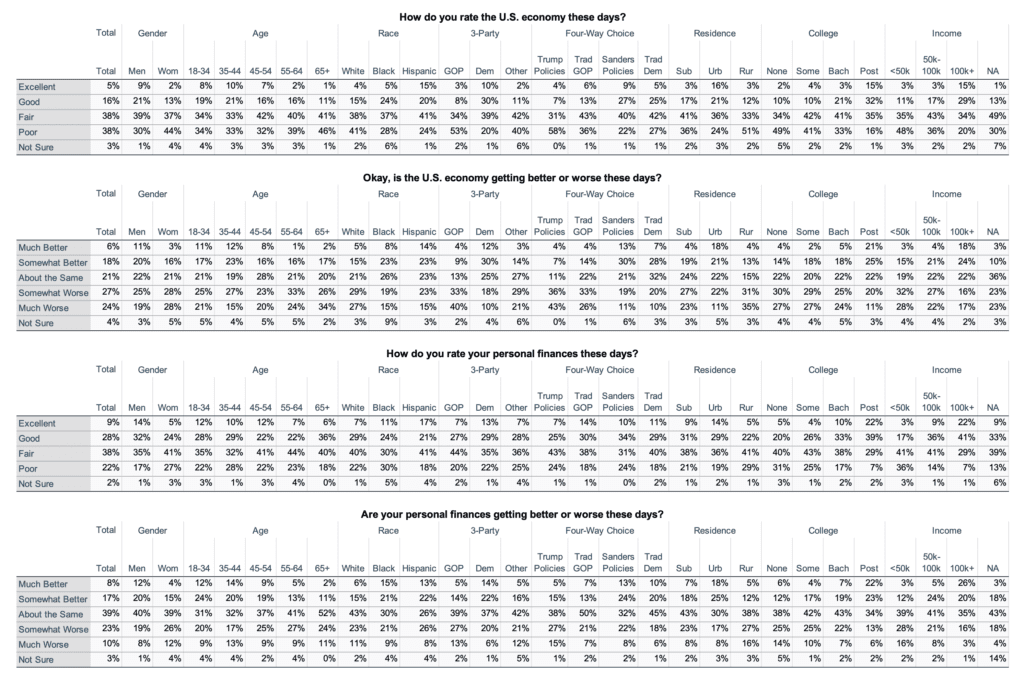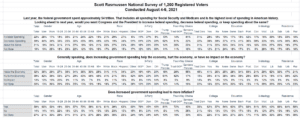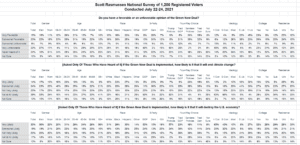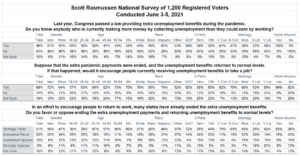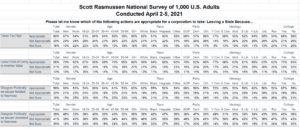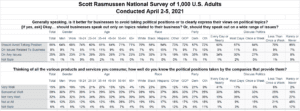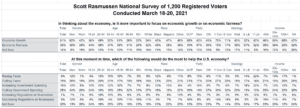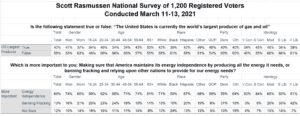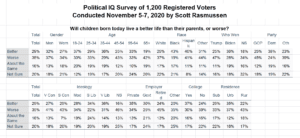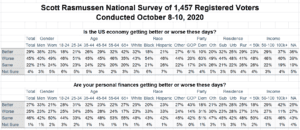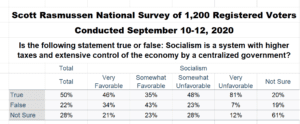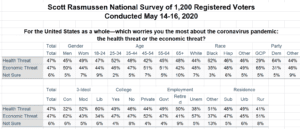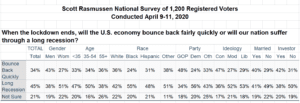Thirty-seven percent (37%) of voters rate their own personal finances as good or excellent. That’s down twelve points over the past eight months. The latest Scott Rasmussen national survey found that 26% say poor. That figure is up twelve points since last April.
The survey conducted in April 2021 found that 28% believed their own finances were getting better while 21% said worse (net +7). The current numbers show a significantly more negative assessment: 20% now say their finances are getting better while 35% say worse (net -15).
Sixty-two percent (62%) of those with a postgraduate degree rate their own finances as good or excellent. A majority of all other voters say their finances are either fair or poor.
By a 41% to 20%, those with a high level of formal education say their finances are getting better. A solid plurality of all other voters say their finances are getting worse.
SIGN UP to receive Scott’s free email newsletter.
CHECK OUT Scott’s latest polls.
Note: Neither Scott Rasmussen, ScottRasmussen.com, nor RMG Research, Inc. have any affiliation with Rasmussen Reports. While Scott Rasmussen founded that firm, he left nearly a decade ago and has had no involvement since that time.
Question 1:
How do you rate the United States economy these days?
6% Excellent
17% Good
37% Fair
36% Poor
4% Not sure
Question 2:
Ok, is the U.S. economy getting better or worse these days?
19% Better
53% Worse
22% About the same
6% Not sure
Question 3:
How do you rate your personal finances these days?
9% Excellent
28% Good
34% Fair
26% Poor
4% Not sure
Question 4:
Are your personal finances getting better or worse these days?
20% Better
35% Worse
40% About the same
5% Not sure
Methodology
The survey of 1,200 Registered Voters was conducted online by Scott Rasmussen on January 6-7, 2022. Field work for the survey was conducted by RMG Research, Inc. Certain quotas were applied, and the sample was lightly weighted by geography, gender, age, race, education, internet usage, and political party to reasonably reflect the nation’s population of Registered Voters. Other variables were reviewed to ensure that the final sample is representative of that population.
The margin of sampling error for the full sample is +/- 2.8 percentage points.


